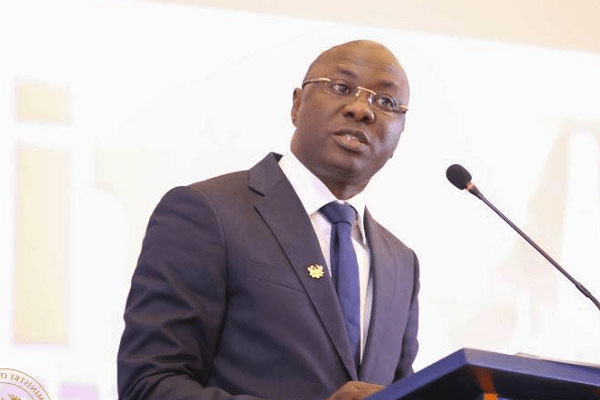
The banking sector clean-up, embarked on by the Bank of Ghana (BoG) to save the industry from collapse, could cost the country between three and four billion dollars, the Minister of Finance, Ken Ofori-Atta has said.
This is equivalent to GH¢21 billion using the Bank of Ghana's dollar transaction rate for commercial banks.
Mr Ofori-Atta, who disclosed this in Accra on Monday, when presenting the Mid-Year Fiscal Policy Review and Supplementary Estimate to Parliament, said the country was at a point of "major fiscal melt down" when the banking crisis occurred, and the government needed to step in to save the economy from collapse.
The BoG embarked on banking and Specialised Deposit Institution sector clean up two years ago and revoked the licenses of nine universal banks, 347 microfinance companies and 39 microcredit companies.
They include UT Bank, Capital Bank, uniBank, Construction Bank, The Royal Bank, Biege Bank, Sovereign and Construction Bank.
This, according to the BoG, followed massive failures brought about by several years of an unsustainable licensing regime which lowered standards for entry into the banking and SDI sectors.
Mr Ofori-Atta said so far, the government had pumped about GH?12.125 billion into the banking and SDI industries.
"The government set the Consolidated Bank Ghana Limited and capitalised it with GH?450 million to ensure that no depositor lost deposits. The government of Ghana has had to issue bonds to the tune of GH?11.2 billion to cover the cost of the financial sector resolution and protect depositors. The government has provided an amount of GH?925 million in cash to cover the small depositors of the 386 microfinance institutions, bringing the total cost to GH?12.125 billion," he said.
He said many of the banking and SDI's had denied depositors access to their deposits for a long period of time, creating liquidity challenges in the financial system resulting in a high incidence of credit defaults in the system, indicating that the threats posed to the stability of the financial system and the economy at large were enormous, justifying the bold actions taken by the BoG.
"The government's actions have restored confidence in the banking system. Through the government's interventions, significant deposits held by some 2,655,100 depositors (1,525, 550 bank depositors and 1,129,820 Micro Finance Institutions depositors) have been saved. Over 3,000 jobs have been saved," he said.
The minister stressed "the government has demonstrated its commitment to providing timely relief to depositors whose funds were at risk as a result of the demise banks and SDI's."
Mr Ofori-Atta said BoG's directive to banks to increase their minimum paid-up capital to GH?100 million by 31 December 2018 has been successful, and injected fresh capital of GH?4.2 billion into the banks, adding that the Ghana Amalgamated Trust intervention is expected to lead a strong indigenous Ghanaian presence in the banking sector.
"It is gratifying to note that these regulatory and policy measures undertaken to clean up the financial sector, have already begun to bear fruit," he said.
Responding to suggestions that instead of revoking the licenses of the defunct institutions, the BoG should have kept them going somehow, the Mr Ofori-Atta "the state at which the current administration found the banking and SDI sectors, it was too late to salvage the already comatose financial institutions and intensive and intrusive surgery was required for the many walking dead."
Read Full Story
























Facebook
Twitter
Pinterest
Instagram
Google+
YouTube
LinkedIn
RSS